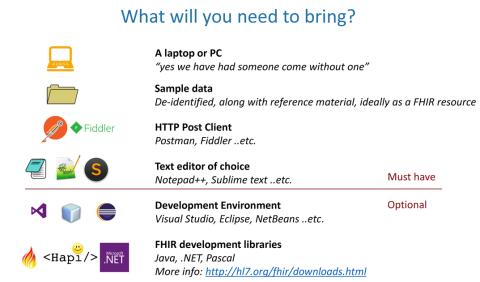NCTS Connectathons are great opportunities for digital health developers to enhance their implementation skills.
Are you a geek or a nerd? Neither? Both? Not sure? There are a number of earnest but entertaining dissections of these terms on the internet which might clarify this very important issue for you. For the sake of discussion, let’s treat “geek” as being roughly synonymous with “enthusiast”, and “nerd” with “expert”. Sorted!
If you’re reading this article, you’re presumably interested in digital health. Does that make you a digital health geek? Maybe. In particular, are you interested in developing a practical understanding of implementing FHIR, SNOMED CT-AU, and other clinical terminologies? If so, you’re almost certainly a nerd. Also, you should think about attending the NCTS Connectathon some time.
What is a connectathon?
Connectathons are events that give developers the opportunity to connect their systems to a particular service or platform, as a proof of concept for further development. A connectathon is a safe space where you can learn a lot of practical information about how to develop functional products and to improve the functionality of existing products. You’ll have the opportunity to collaborate with other developers in same domain, learn from each other, and forge new personal connections.
NCTS Connectathons
The Agency’s National Clinical Terminology Service (NCTS) has been hosting connectathons since 2016. As we reported on the 2017 connectathon in Melbourne, participants found great value in working side-by-side with each other, testing their products against their customers’ software.
Two more events have been held recently, on 18 March in Sydney, and 20 March in Melbourne. If you missed out, we encourage interested readers to email the Agency’s Help Centre at help@digitalhealth.gov.au or call 1300-901-001 for more information and to register for future events.

Introductory information from the 2018 event
In the meantime, fire up your compilers, and get coding!